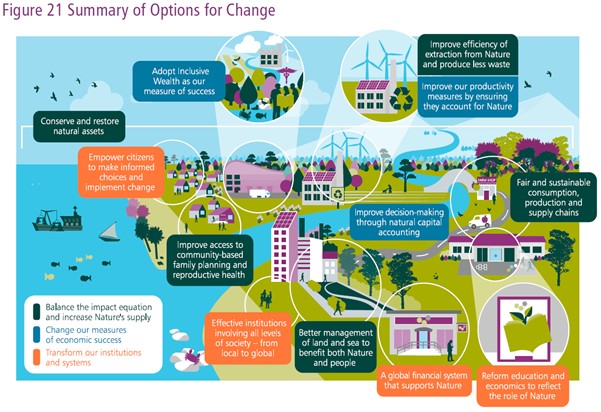
Prof Dasgupta analysis offers new, crucial evidence that investments to preserve nature will result in a healthier, wealthier economy for generations to come. Credit: Nigel Simpson
The publication this week of the Dasgupta Review is a momentous occasion for biodiversity and humanity, as stated so clearly by World land Trust (WLT) Patron Sir David Attenborough in the foreword:
“The Dasgupta Review at last puts biodiversity at the core of [economics] and provides the compass that we urgently need. In doing so, it shows us how, by bringing economics and ecology together, we can help save the natural world at what may be the last minute – and in doing so, save ourselves.”
Led by Professor Sir Partha Dasgupta, the Independent Review on the Economics of Biodiversity (see here to read the final report in full) is a comprehensive and welcome addition to the understanding of something conservationists and Indigenous people have long known, but also lacked hard numbers for: the economic value of biodiversity.
In the 606-page report, Prof Dasgupta lays bare a “deep-rooted failure” in how human societies have historically assigned value to the natural world. As he notes, prevailing economic models have viewed nature as external to humanity; something to be used for seemingly limitless growth thanks to our technological advances. And yet the Dasgupta Review offers evidence to the contrary: that in reality, our economies are dependent upon – and restricted by – nature’s boundaries.
Having clearly demonstrated that our demands on nature far exceed its ability to provide for us, Prof Dasgupta then shifts the focus onto how to correct the imbalance. His analysis is a call to action for us all – a blueprint on how to embed nature into our economic decision-making for the sake of nature itself, yes, but also and mainly for our own survival and that of our descendants.
Prof Dasgupta’s roadmap lays out three broad transitions that we need to take as a society to bring about the “transformative change” this crisis requires (see diagram below): decrease our demands upon nature (while protecting and increasing its supply), change the way we measure success and transform our institutions and systems.

Attempts to realign the global economy with nature won’t succeed unless humankind accepts that prosperity is embedded in (and reliant on) the natural world, Prof Dasgupta argues. Credit: HM Treasury
Concerning the first step (increasing nature’s supply), Prof Dasgupta’s review demonstrates how it is less costly to protect what we have than attempt to restore it. It calls for greater investment in protected areas, arguing that the benefits of doing so far outweigh the costs – even when solely confined to financial benefits.
Nature-driven economics: The ball is in the court of world and business leaders
As an organisation created to fund the conservation of nature, WLT’s resolve is strengthened by the Dasgupta Review.
We have come far in our 30-plus years of history – funding directly the protection of 2.2 million acres, as well as leveraging a broader 5.5 million acres and connecting a total of 20 million acres – and we’re determined to go on. We’re determined to help catalyse support towards the protection of natural assets – threatened habitats – that, as Prof Dasgupta shows, will be key to the economic wellbeing of future generations. We hope that you, our supporters, will join us on this ever more crucial journey.

If world and business CEOs act to substantially invest in natural protection, they will safeguard the assets that economies will depend on in the future, Prof Dasgupta argues. Credit: Fundación Pro-Bosque
And yet as far as we can go together, restoring the balance with nature is not something civil society can achieve alone. Governments and companies must look at the undeniable economic arguments presented in this report and rapidly translate their sustainability rhetoric into clear action: transforming business models so that they alleviate the demands on nature, and ensure the growth of the natural assets that our economies and lives so depend on.
That the time for action is now is made evident when thinking back to the track record: the failure to meet the UN’s 2010 and 2020 biodiversity targets, as well as our off-track trajectory to meeting the 1.5 degree goal set out under the Paris Agreement. As I have written before, the grand statements and future targets we keep seeing from our leaders are not being followed through by the level of investment that natural protection really needs.
WLT call upon all sections of society to step up to this challenge, and ensure we provide a world upon which future generations can thrive. As Prof Dasgupta has now made clear, the case for doing so is not just moral — it is also unequivocally economic.
Dr Catherine Barnard
World Land Trust CEO

